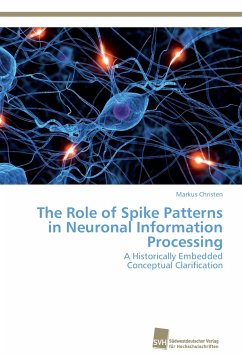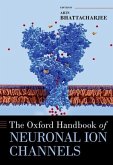Understanding the brain as an 'information processing device' is a commonplace. Although this expression is widely used within and outside of neuroscience, it does not really express a precise understanding of neuronal processes. This book intends to provide a conceptual clarification by defining the term 'spike pattern' and by evaluating the application of this concept within the framework of neural coding and neural computation. This scientific endeavor is complemented by a historical investigation that analyzes the historical roots of today's discussion on the information processing brain. The scientific part also includes a review of current theories of neural coding and neural information processing and an in-depth discussion of pattern detection in neuronal spike trains. Possibilities and limitations of several pattern detection methods are outlined in detail and integrated in a general scheme of the spike pattern detection problem.








